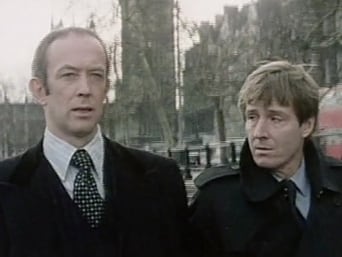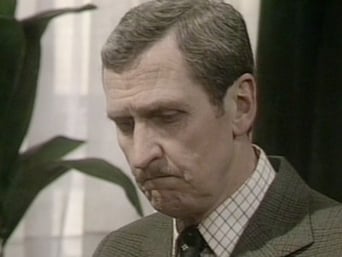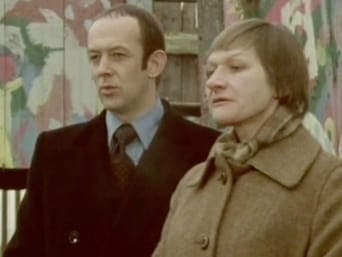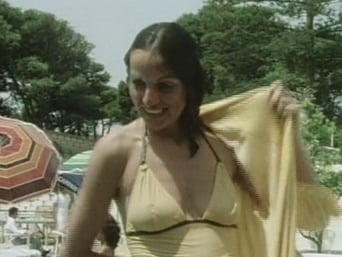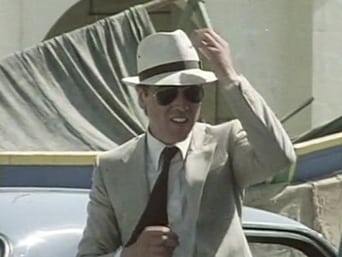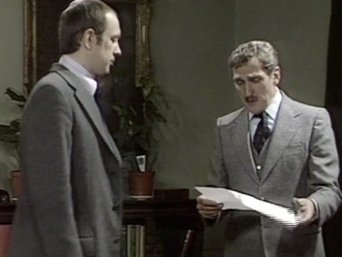johngammon56
The Sandbaggers is one of the most intelligent series dramas to come out of British television, and it has devoted followers wherever it's been aired. Despite this, it is one of those shows which always seems to be forgotten about in TV retrospectives or histories. I think the principal reason for this is that it is a "niche" programme in the days before there were such things. Up until 1980 or so, British TV was not as narrowcasted as it appears now, and a drama shown on a weekday evening where there were only three channels would be assumed to have wide appeal throughout the arcane letters and numbers of marketing/advertising categories. But The Sandbaggers is resolutely for the ABC1 audience a similar viewership to, say, The West Wing. It's complicated, fast moving, dialogue heavy, with most of the action revolving around people walking in and out of offices, talking, arguing and picking up the phone. Sometimes - as in the episode "My Name is Anna Wiseman", in which Burnside helps to fake a defection knowing that the subject will certainly be caught, tortured and tried - it functions as highly political drama, as good as anything in contemporary agitprop theatre. Nowadays, if it were made at all, The Sandbaggers would be on late night, or on a cable channel. Some British series, such as Callan, Public Eye, or even the earlier ITV spy series the Rat-Catchers, fitted the format of 50 minutes plus ads better; others, such as Rumpole of the Bailey, used their popularity to allow special "movie length" stories from time to time. But The Sandbaggers was apparently too shortlived and wasn't liked enough by the general viewing public to gain leverage.And yet it's gripping. The situations the series deals with are global ones, involving the shifting, tenuous balance of power between the powers during the tail end of the Cold War. Our "hero", Neil Burnside, is the workaholic director of operations in the British security services abroad, in charge of a group of "sandbaggers", the secret heavies who to take on the dirty, secret jobs. He is an obsessive, with little in his life apart from the job and the struggle against the KGB and their pals. He is also and this is where much of the drama comes a liar and a cheat, prepared to do anything up to and including misleading or defying his bosses to achieve his (albeit worthy) goals. But the world of The Sandbaggers is packed with deceit. The apparently relaxed and compliant Jeff Ross, his opposite number at the CIA, poses as Burnside's friend and confidant, but is not averse to double crossing the British whenever the situation calls for it. Similarly Wellingham, the man from the ministry and Burnside's ex-brother in law, seems to be Burnside's protector to his colleagues and bosses, but is not averse to stabbing his back if needs be.Unusually in series TV drama, most of the characters including our protagonist are simply not very nice people. Though Burnside (an ex-sandbagger himself) is fiercely protective of his men, the security service seems to function on office politics between departments, personal ambition, back covering. And though it's never said explicitly, the class lines are very clear: Burnside is ambitious, but you know he will never move up the line.There are lots of incidental pleasures. The clothing Burnside's no nonsense three piece suits contrast with the Savile Row or civil service tailoring of his bosses. (Indeed, a similar case for symbolism could be made for the hairdressing!) The appalling treatment Burnside dishes out to his secretaries, whom he affects to consider to be little more than coffee makers. (Luckily, they're spunky enough not to take the treatment.) Burnside's poor diet he always seems to be at a Chinese restaurant ordering his "usual", at a McDonald's, or making himself a rather disgusting fry up at home. The endless sniping over saving relatively minor amounts of money in the service. The highly creative use of locations, in which some of the less picturesque parts of Britain are meant to stand for grim places beyond the Iron Curtain. The fact that no-one in the production team seemed to know whether the creator was Ian MacKintosh or Ian Mackintosh. Plus, despite the subject matter, The Sandbaggers can also be very funny.The faults in the programme are almost entirely due to the curious set-up in British commercial (ie not BBC) television at the time it was produced. The series fell into the slot after the "watershed", the arbitrary 9pm line beyond which adult television could be shown, and the News at Ten, which at the time was an unshakeable institution. What this meant was that The Sandbaggers, which demanded a more extensive length, often had to cram the plot of a 70 minute show into 50. The editing is so sharp as often to give a shock to the viewer. The dialogue is fast and furious, with little time for pacing. The endings often seem too pat. Some of the stories and themes cry out for a more leisurely approach. For instance, Burnside's love affair with Laura Dickens seems hurried and not properly examined, and her death at the end of series one (murdered on Burnside's orders) needs more explanatory scenes. Some other times, complex plots can only be wound up by overly explanatory dialogue scenes. Imagine The Sopranos existing under similar restrictions.The still unexplained disappearance of Ian Mackintosh was a genuine tragedy and one which led to the series ending somewhat abruptly. The new writers were good, and rounded off the third series neatly, but it was decided that there was a certain quality missing. Principally, this was the impression that Mackintosh, rumoured to be an MI5 agent himself, had the insidere knowledge to know exactly what he was talking about. Nevertheless, it's a great, great series.
Sulla-2
This programme starred Roy Marsden as a MI5/MI6 Officer responsible for a small section called ' The Sandbaggers' Operatives who are tasked with doing whatever dirty work is necessary. The head of the Sandbaggers section is played by Ray Lonnen. The problem is that for most of the time Lonnen is the only person in the section !! The programme is not an action adventure,. but more a saga of internal politics. Marsden, as Neil Burnside, as the advantages of marrying the bosses daughter. Although the marriage has not worked out, they are still friends and he is able to get help when necessary. An enjoyable series, well worth seeing again, if I get the chance.
Iconsumer9
I completely agree with the astute reader comments. This was a brilliant show. Good 'spy' drama without gun fights and fiery explosions. Even the British portrayal of the American agent -- slovenly, incessantly eating and talking with his mouth full, crude -- nice one Brits!I rate this English drama show right up there with I, Claudius and Hitchhikers Guide to the Galaxy.Just proves what the Brits and Japanese know -- riveting drama doesn't require car chases and cleavage.Thank you London and PBS!
hhs-3
The abrupt end of the series generated enough talk among fans here in NYC that the local PBS station that broadcast it (WLIW) issued a release that the driving force behind the series, Ian MacIntosh, died suddenly and the production company decided not to carry on with it- MacIntosh had written 17 of 20 episodes. One seemingly reliable web source says MacIntosh was lost on a plane flight in Alaska, but I have also heard it was a heart attack.BTW, one point in the series simply does not ring true- the fate of Laura Dickens, played by Diane Keen. Intell services that go around killing their own non-defecting agents don't have agents for very long. There might be rare exceptions, but this wasn't one of them. Witness the extreme efforts even the Russians made to get back their own, such as George Blake. it is one thing to lose people in the field- that is expected (although the CIA, in fifty-plus years, has lost about 80, and a number of these to accident); it is quite another for an agent to go out there thinking his own people may be gunning for him. Until I see documented cases, its pure Hollywood.
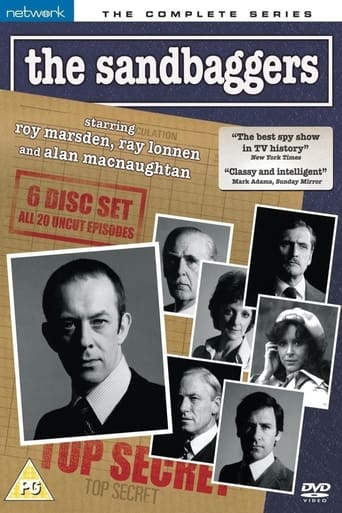
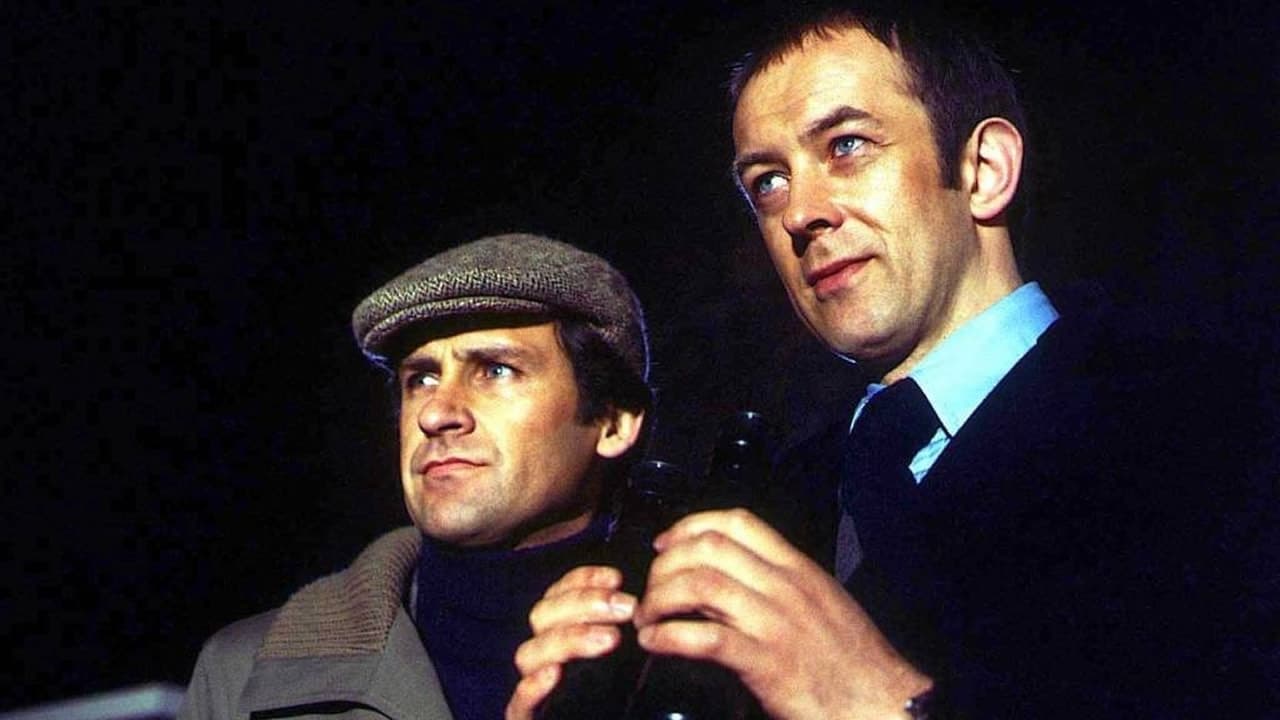
 AD
AD


